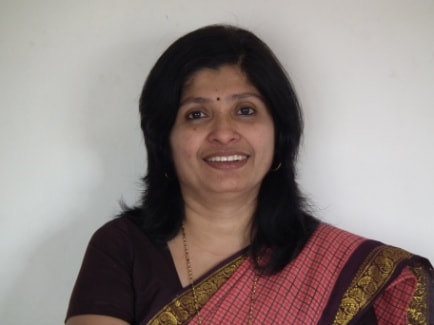- 3rd Int. Conf. Ayurveda for Women's Health
- >
- Infertility due to Fallopian tube block - Dr. Varsha Deshpande
Infertility due to Fallopian tube block - Dr. Varsha Deshpande
Varsha Deshpande, BAMS, MD (Ayurveda),Karad, Maharastra, India
Dr. Varsha Deshpande has been a practicing consulting obstetrician and gynecologist for 17 years at her self-owned hospital. She has delivered about 3000 babies and performed the same number of major and minor gynecological surgeries. She offers results-oriented specialized ayurvedic treatment for gynecological problems like PCOS, infertility, Fallopian tubal blocks, etc. Dr. Deshpande underwent laparoscopy training at FPAI Hospital, Mumbai; sonography and fetal monitoring training at Wadia Hospital, Mumbai; IUI training at AAKAR IVF Center, Mumbai. She worked for three years during post graduation as a resident and registrar at Tarachand Ramanath Hospital Pune. She was also a junior lecturer at Ayurved College, Aakurdi, Pune, a lecturer at Ayurved College, Peth Vadgaon, Kolhapur, a lecturer at Sion Ayurved College, Mumbai, a visiting associate professor and professor at Ayurved Collage, Terdal, Karnataka, an examiner for BAMS in Streerog-Prasuti Tantra, and a yoga consultant at Shivaji University, Kolhapur.
Abstract: Fallopian tubal blocks play a major role in the causes of primary and secondary infertility. Causes of such blockages are mainly infection, tubercular salpingitis, previous surgeries like dilatation and curettage, salpingotomy for ectopic pregnancy, etc. The treatment for infertility due to tubal factors is mainly IVF, i.e. in vitro fertilization, which is very expensive with success rates of up to 40% at very sophisticated centers. IVF requires a gynecologist, a sonologist, an embryologist and also huge instrumentation. In developing countries, this treatment is beyond the reach of a common man. Ayurveda gives some hope for such patients with the treatment of uttarbasti. After treatment with uttarbasti, we get very encouraging results not only to resolve tubal blockages, but also in improving the quality of the endometrium and the tubal mucosa, all resulting in a very good pregnancy rate. The paper presents clinical data of the cases that were administered uttarbasti and speaks about the efficacy of the procedure, evaluating the clinical data. It shows photographs of hysterosalpingography tests done before and after uttarbasti procedure. It also tells the various medicines used for the procedure. Uttarbasti treatment gives very encouraging results in the treatment of infertility due to fallopian tubal blocks. It is highly recommended to undergo this relatively simple and cost effective treatment before resorting to in vitro fertilization.

